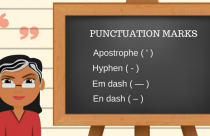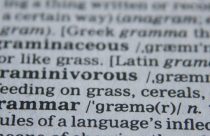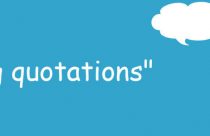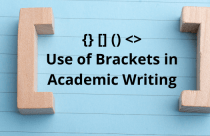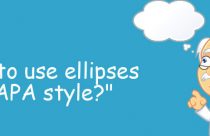Punctuation Rules: Do They Really Matter?

Can you imagine a world without punctuation it does not seem to be a big deal does it people cannot imagine a world without Netflix Instagram Wi-Fi or Smartphones but it would hardly matter if suddenly all the commas apostrophes periods parentheses question marks dashes etc disappeared from the English language one can confidently say punctuation would barely be missed in fact their absence would not even be noticed by almost anyone barring the grammar geeks and centenarians what do you think
Jeet Thayil began his 2012 Man Booker Prize-nominated novel, Narcopolis, with a seven-page (2309 words) run-on sentence without any periods. The first paragraph—without punctuation—of this article has 82 words; now imagine reading 2309 words without a period! What’s adding fuel to the fire is that millennials and Gen-Z believe periods in text messages are incredibly uncool and outright hostile. Whoa!
It’s 24th September 2020 today—the 17th anniversary of National Punctuation Day in the United States. When Punctuation Day was founded in 2004, the iPhone was still three years away from its paradigm-shifting arrival. Over the past 16 years, the world has evolved at a supersonic speed. One of the conspicuous casualties of the dissemination of technology—primarily via Smartphones—is the Art of Language. People’s vocabulary has been shrinking dramatically with each passing year—even the ostensibly simple prose of Sir Arthur Conan Doyle (creator of Sherlock Holmes) now comes across as elite literature. Almost everyone now relies on the auto-correction tools for spellings, and when it comes to punctuation, it is evident that people across the globe are completely at sea. What’s telling is that most modern humans don’t care for punctuation. Case in point: Apostrophe Protection Society, formed in 2001, came to a heartbreaking, yet expected halt in November 2019. Its 97-year-old founder John Richards bluntly remarked, “Ignorance and laziness have won.”
Now that the importance of punctuation is established, you may choose a powerful writing assistant such as Trinka, an AI-powered tool that instantly identifies and corrects all punctuation errors and enhances the overall quality of your writing, making it ready for the global audience. We have also given some insights on punctuation rules that may help you write better.
What are the Punctuation Rules?
With the world all but turning its back on proper punctuation, it becomes even more crucial to ensure that you don’t choose the road popularly taken. “Why should I care for punctuation when most don’t?” If your writing—specifically formal or academic—is well punctuated, you’re bound to stand out and move ahead quicker professionally. This is a massive advantage in a world with cutting-edge tech and cut-throat competition for top spots. “Does punctuation really make all that of a difference?” You will be surprised how an inaccurate or a lack of punctuation can totally transform the meaning of your writing—often making it unintentionally comical. Here are a few basic punctuation rules:
1. All Punctuations Must be Parallel
This means that when a main clause is interrupted with a comma or a dash, it must be interrupted with same punctuation marks at the beginning and at the end. Furthermore, it also means that you must not use a semicolon to differentiate just one item in a list.
Incorrect: The teenagers, students from Mrs. Mathew’s history class-went to the museum.
Correct: The teenagers, students from Mrs. Mathew’s history class, went to the museum.
Correct: The teenagers-students from Mrs. Mathew’s history class-went on a field trip to the museum.
Incorrect: Jessica has lived in Dallas, Texas, Seattle, Washington; and Stamford, Connecticut.
Correct: Jessica has lived in Dallas, Texas; Seattle, Washington; and Stamford, Connecticut.
2. A Colon Must Appear at the End of a Clause
A colon must be used at the end of the main clause. If the sentence is already complete, you may use a colon to add a list, elaboration, or restatement.
List: I have three sisters: Grace, Meredith, and Amelia.
Elaboration: I have decided not to move to Los Angeles: I have been offered a better job in Michigan.
Restatement: Thinking back, Derek wasn’t sure who started yesterday’s fight: he couldn’t decide whether it was his or his friend Mark’s fault.
3. Semicolons are Used for Equal Emphasis
A semicolon can connect two related independent clauses in a compound sentence as a substitute to a coordinating conjunction.
For example:
With coordinating conjunction: Nathan answered the question abruptly because he was busy.
With semicolon: Nathan answered the question abruptly; he was busy
Someone was spot-on when they claimed, “Correct punctuation saves lives.”
You can take inspiration from grammar mavens—Game of Thrones’ Stannis Baratheon, The Lord of Grammar, or Josie Geller, Drew Barrymore’s grammar-obsessed character from Never Been Kissed—and begin your journey toward perfecting your punctuation game and understanding the importance of punctuation in writing. But it’s easier said and almost never done. Even if you have the resolve, time will always be a major constraint. And even if you have both the time and resolve, mastering the Art of Punctuation is nothing less than climbing Everest.
Fortunately, you live in a world where there are online writing assistants driven by artificial intelligence. Trinka AI, a next-generation writing assistant, designed for academic and scientific writing, is the latest to hit the global market, and it’s already ahead of the curve. Even better, it’s available for free. Not only punctuation, Trinka checks and corrects all aspects of your writing, including 3,000+ complex grammar errors, technical phrasing, and academic tone; suggests phrasing preferred by the AMA; fixes incorrect sentence structure and word choice; rectifies vague and biased language; and also makes your writing concise. In short, Trinka makes poor writing good and good writing better.
It is fair to say that Gen-Z will continue to have a more unconventional attitude toward punctuation. Nevertheless, if you’re ambitious and want to be published in the top publications and journals, you have to ensure that your writing is par excellence. Jeet Thayil might have gotten nominated for the Man Booker Prize and even adored for writing the seven-page prologue without periods, but an academic manuscript is far more likely to face desk rejection for such artistic liberties. Go ahead and give Trinka, the AI-powered writing assistant, a try—it will make your articles and papers ready for the global audience and propel you toward success.






